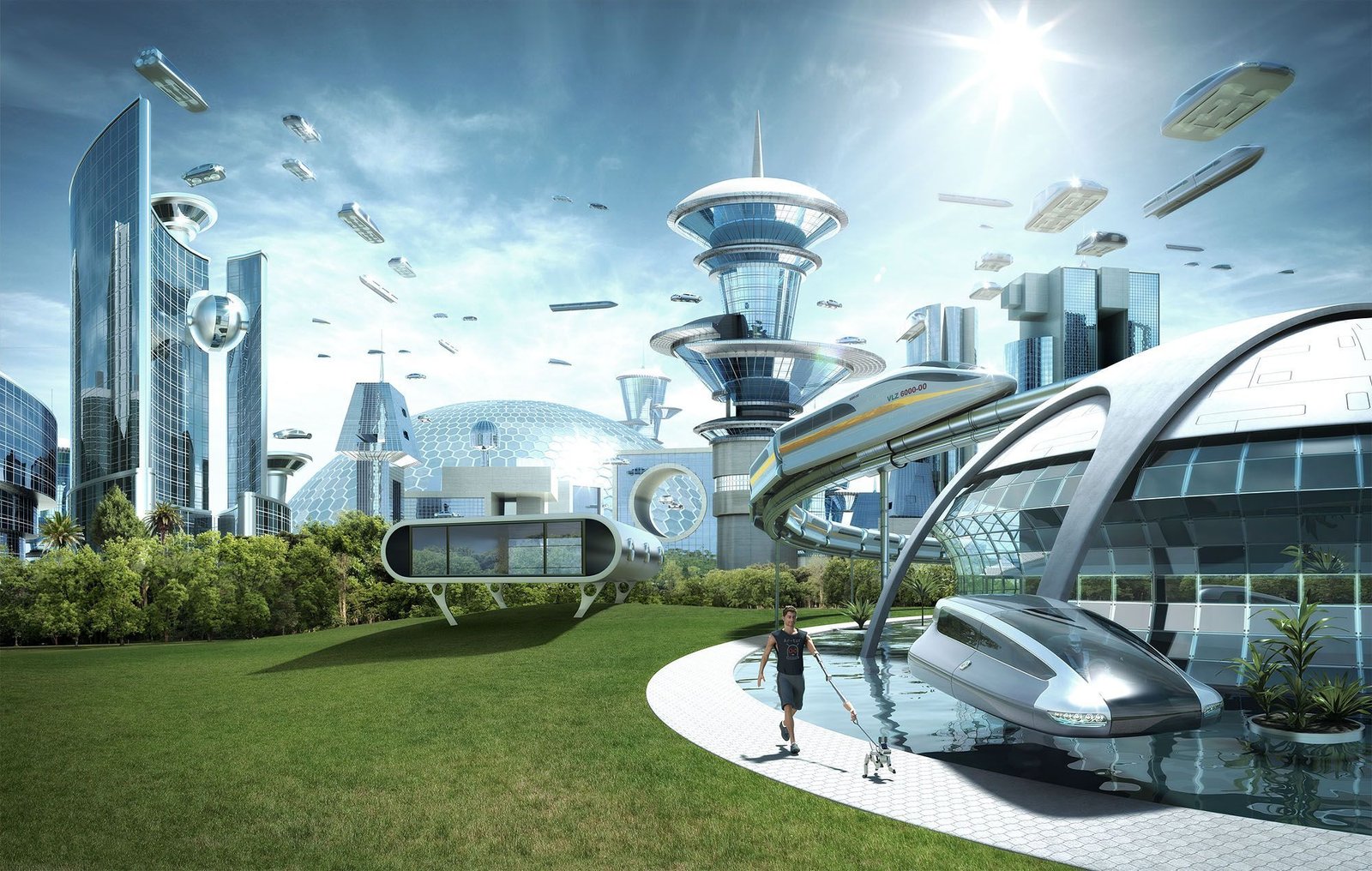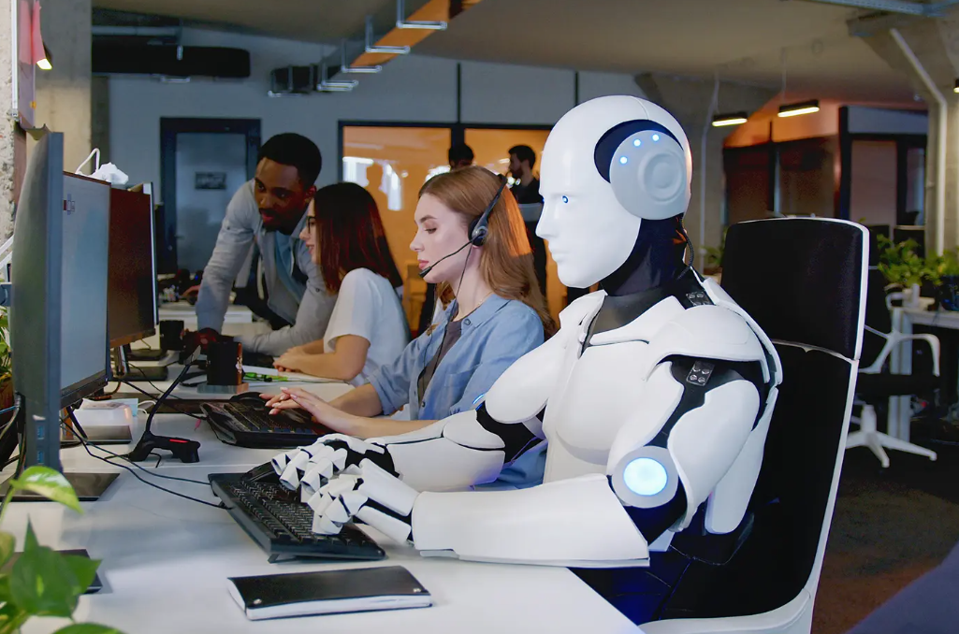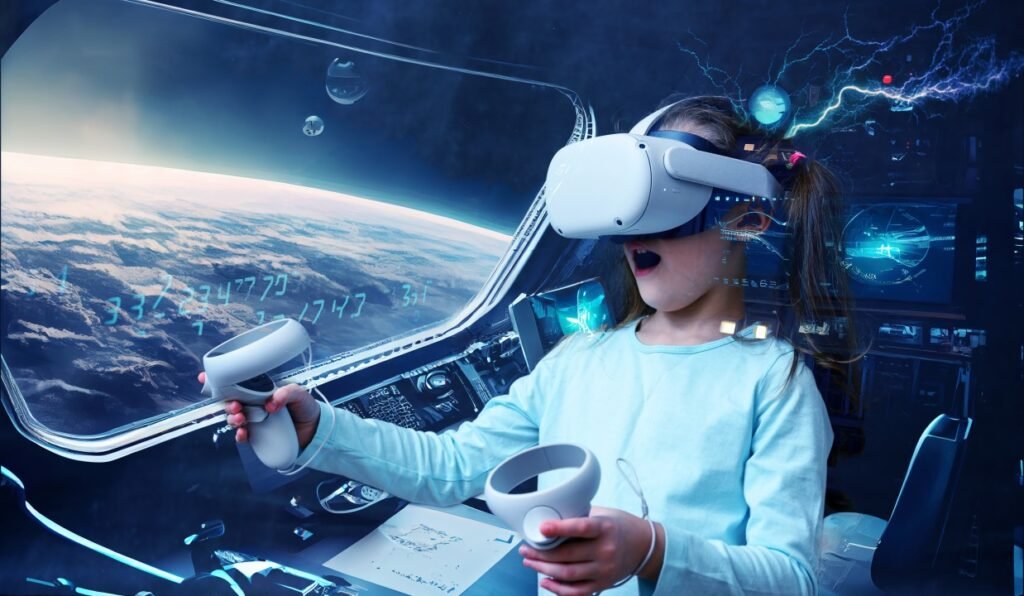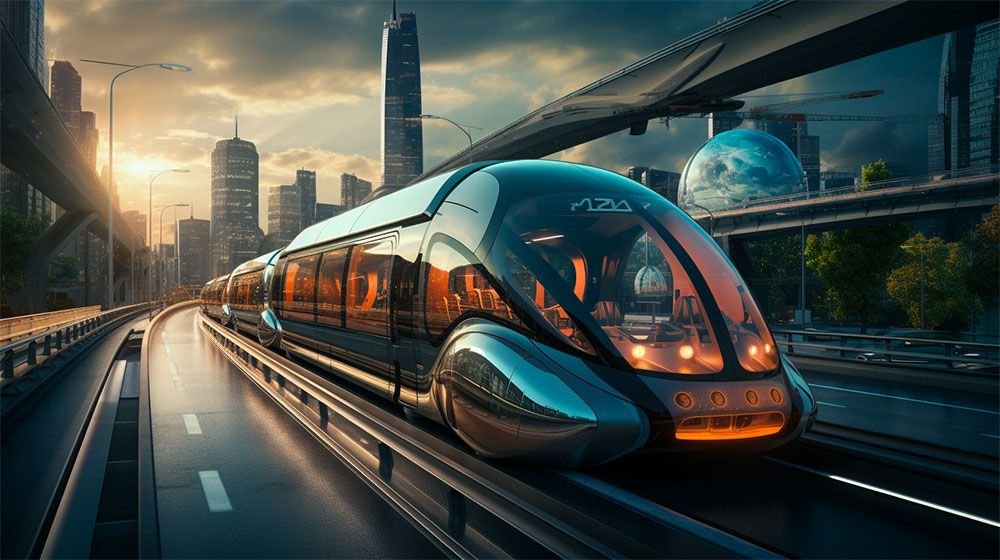The future of AI is closer than we think, and in just 10 years, it will have dramatically transformed the way we live, work, and interact. From smarter homes to personalized healthcare, AI will shape every aspect of our daily lives, offering convenience, efficiency, and new possibilities we can only imagine today. But what exactly will this AI-driven world look like in 2034? Let’s explore the key changes we can expect.
AI in the Home: Smarter, Simpler, and More Personalized
Imagine waking up in 2034, and your house has already set the perfect temperature based on your morning routine. Your coffee is ready, brewed exactly how you like it, and the lights adjust based on the weather outside. AI will make this level of customization and automation not just a luxury but a standard feature in most homes. Virtual assistants will be way beyond just setting timers and playing your favorite songs. They’ll anticipate your needs, learning continuously from your habits and preferences.

AI will also revolutionize home security systems with predictive algorithms that can analyze potential threats and respond before they happen. The future might even see a rise in AI-powered robots for household chores—finally ending the dreaded task of laundry for good!
AI in Education: Learning with AI Tutors
Ten years from now, our kids won’t just be learning from teachers; they’ll be guided by AI tutors personalized to their individual learning styles. Whether your child struggles with math or excels at science, AI will be able to tailor lesson plans, quizzes, and feedback to maximize their potential. This level of customization won’t just help students who struggle—it’ll also challenge the gifted in ways traditional education systems simply can’t keep up with.

We’re already seeing glimpses of this today with tools like Duolingo and Khan Academy incorporating AI for personalized learning. But by 2034, the classroom will look vastly different, with AI assisting teachers in creating more engaging, immersive learning environments.
AI in Healthcare: Proactive and Personalized Care
One of the most profound impacts of AI will be in healthcare. AI-powered diagnostics will revolutionize early disease detection, identifying problems before symptoms even manifest. AI will analyze health data in real-time from wearable devices, providing insights that allow doctors to offer proactive rather than reactive care. You could receive a notification from your AI health assistant warning you of an irregular heartbeat or potential health issue, days or even weeks before you’d typically see a doctor.

Additionally, robotic surgeries powered by AI will become more precise, reducing recovery times and increasing success rates. With AI guiding medical professionals, we’ll likely see a significant decrease in misdiagnoses and an increase in personalized treatments based on your genetic makeup.
AI in Work: The Great Partnership
The workplace in 10 years won’t be a world dominated by AI, but rather a world transformed by human-AI collaboration. Routine, repetitive tasks—think data entry, customer service, even legal paperwork—will be handled by AI, freeing up humans to focus on creative, strategic, and interpersonal roles. In industries like manufacturing, AI-powered robots will handle dangerous or monotonous tasks, creating safer work environments.

But don’t worry, this doesn’t mean widespread job loss. Instead, we’re likely to see the rise of new roles in AI management, training, and ethical oversight. Workers will need to adapt, learning new skills to collaborate with AI systems effectively, and organizations will invest heavily in upskilling their workforce.
AI in Entertainment: Hyper-Personalized Media
If you thought streaming services like Netflix and Spotify already knew you too well, just wait until 2034. AI will completely personalize your entertainment experience, crafting shows, music, and even video games specifically for you. Imagine an AI-generated movie where the storyline adjusts based on your preferences, or music that evolves in real-time to match your mood. AI-generated content will blur the line between user and creator, offering interactive experiences that feel deeply personal.

Virtual reality (VR) and augmented reality (AR) experiences will also take off, powered by AI, to create fully immersive entertainment. Want to explore ancient Rome or walk through a fantasy world? AI will make these experiences feel more real than ever before.
AI in Transportation: Autonomous Everything
AI will transform the way we move, with autonomous vehicles becoming the norm rather than the exception. Self-driving cars, trucks, and even delivery drones will revolutionize transportation, reducing accidents, improving efficiency, and cutting down on commute times. By 2034, you might not even own a car—automated ride-sharing services could dominate the market, offering on-demand transportation that’s cheaper, safer, and more environmentally friendly.

This shift will also extend to air travel, where AI will optimize flight paths, reduce delays, and even assist pilots in decision-making processes, making flying smoother and safer.
Future of AI and Global Problems: The Key to Climate Change and Beyond
One of the most hopeful aspects of AI is its potential to tackle some of the world’s biggest challenges. In 10 years, AI could be a crucial tool in the fight against climate change, optimizing energy use, predicting natural disasters, and developing new materials and methods for carbon capture.

AI will also assist in solving issues related to food production, finding innovative ways to grow crops in changing climates or improving water distribution to areas suffering from drought. The next decade could see breakthroughs in renewable energy, with AI-driven systems ensuring that wind, solar, and other green technologies are utilized at maximum efficiency.
The Ethical AI Question
With all these advancements, the big question remains: how do we ensure AI’s development aligns with our ethical values? In 10 years, society will need to have established robust regulations to ensure AI is used responsibly. We’ll need to tackle questions of data privacy, bias in AI decision-making, and the potential for AI to be weaponized.
Organizations and governments will have to collaborate on creating transparent, ethical frameworks that ensure AI is a force for good. We can’t afford to leave these decisions until the last minute—now is the time to discuss and create systems of accountability that prevent misuse.
A World Powered by AI
In 10 years, AI will be an integral part of our lives—transforming everything from how we work and learn to how we care for ourselves and entertain. The key to this future will be balance: ensuring we develop AI in ways that enhance human potential rather than replace it. We’re not heading into a world ruled by machines but a world where AI is a trusted partner, helping us create a better, smarter, and more sustainable future.
The question isn’t whether AI will change our world—it’s how we’ll choose to shape that change.
What are your thoughts on the future of AI? Let us know in the comments or discuss this on the Mid Mic Crisis podcast, where we’re always diving into the latest innovations and what they mean for you!



